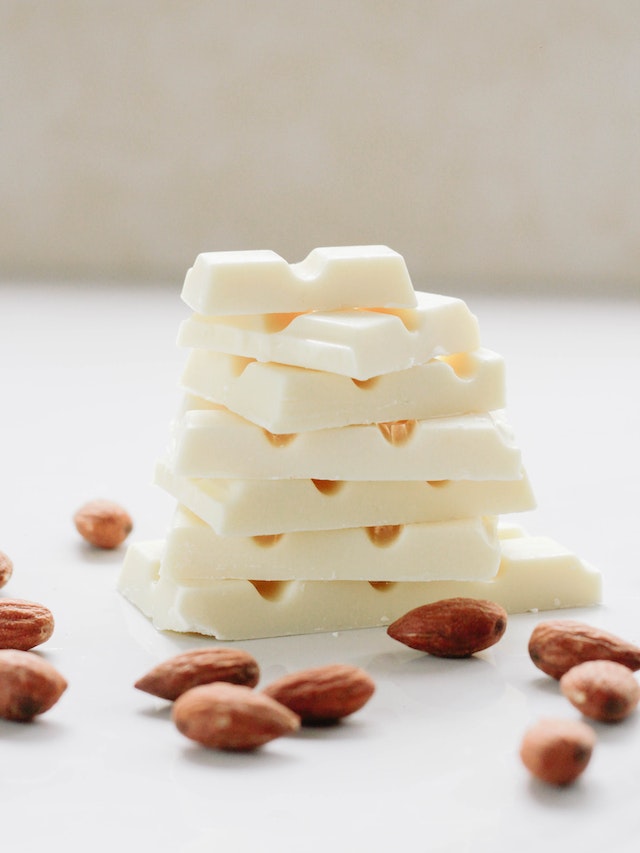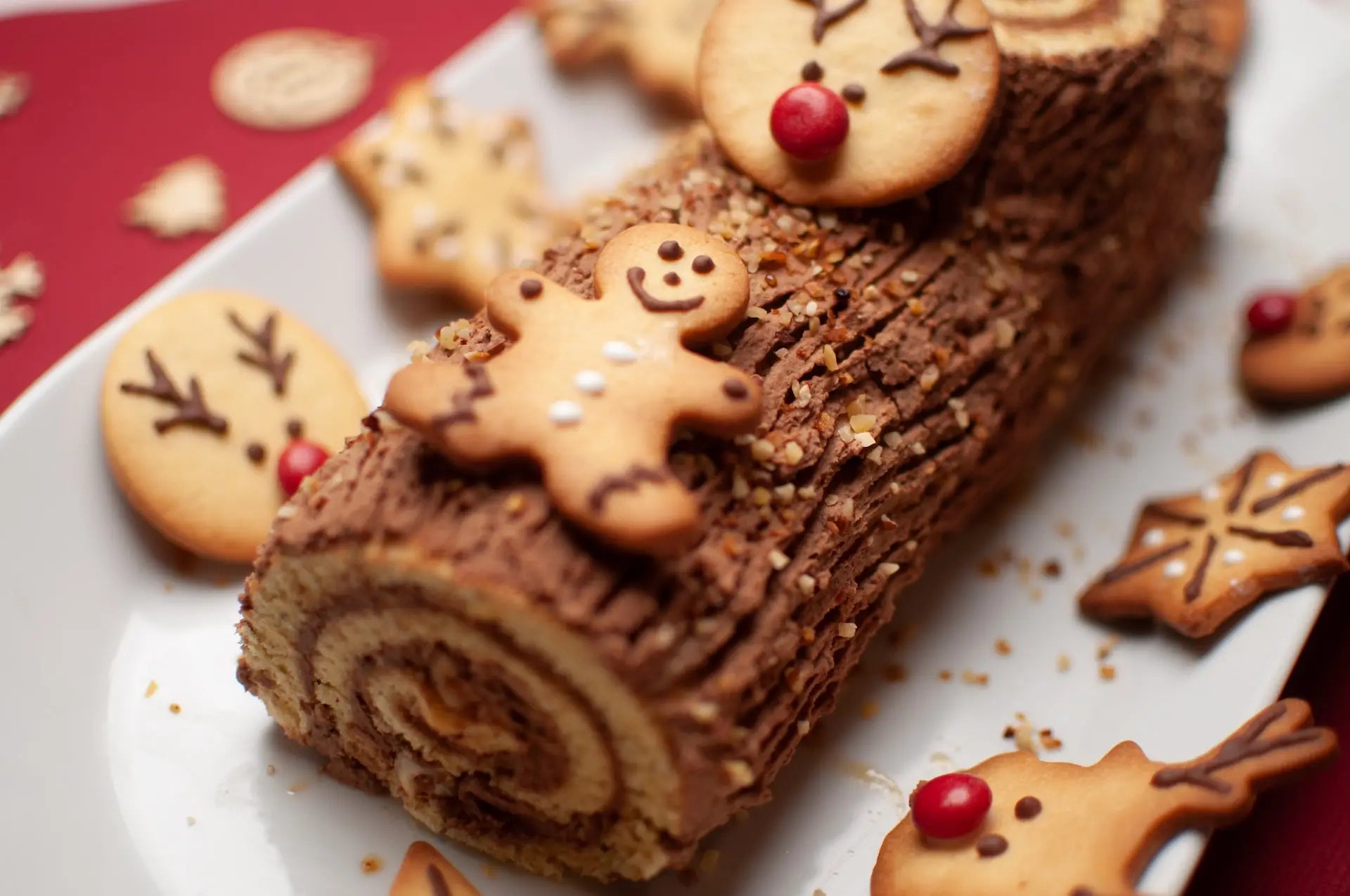Want to know how to be more sustainable at Christmas?
Christmas is a magical time for many of us, but there’s no denying everything that comes with the festive season can rack up an environmental toll. With National Tree Week taking place from the 26th of November to the 4th of December, ecological impact is at the forefront of many of our minds.
And, at Love Cocoa, sustainability is always at the heart of our ethos. From our advent calendars to our Christmas hampers, we use climate-positive, single-origin chocolate, made using only the finest ingredients.
Waste products that have a damaging environmental impact include: wrapping paper, cards, food waste and unwanted presents. According to Biffa, a UK waste management company, more than 100 million bags of rubbish are sent to landfill over Christmas every year.
Read on for our top tips on having an eco-friendly Christmas celebration.
Food and drink
One of the best ways to make your food more planet-friendly is to shop locally, as this reduces the ‘air miles’ used to get the product from the farm to your plate.
For items that can’t be grown in the UK, look specifically for retailers that source their ingredients sustainably and take responsibility. For instance, at Love Cocoa, we plant one tree for every product we sell in a bid to combat climate change.
Reducing your meat consumption or going meat-free is another way to eat more sustainably. And thanks to many years of vegetarian Christmas recipes as well as recent influxes of other cultural influences, there’s sure to be an option that convinces even the most dedicated carnivore. If you and your family aren’t ready to make the full switch, perhaps get a smaller piece of meat and only have it on Christmas Day, with the other days reserved for trying new and exciting meat-free choices.
Finally, you can reduce your environmental impact by limiting food waste. Decomposing food releases harmful greenhouse gases like methane into the atmosphere. In fact, it contributes to approximately 8-10% of the world's greenhouse gas emissions.
Keeping food waste to a minimum is as simple as only buying the food you need —no extra options “just in case”! You can also make a concerted effort to use up leftovers wherever possible. Whatever your Christmas meal of choice is, you should love it so much that you can eat all of it. Whether it’s nut roast done a hundred different ways, turkey curries and sandwiches, it’s time to get creative with what you already have in the fridge.
Gifts and wrapping
Again, it’s a good idea to search for ethical retailers when buying your Christmas presents. If the gift you’re looking for is from a brand, chances are you can get the same thing from a small retailer as opposed to the usual online giants, but you’re also more likely to find a unique present and support a local business when you shop around!
Try to be mindful and intentional about what you buy, too. We don’t like to think that presents we buy get thrown away, but if it’s something low-quality that’s likely to break, or simply something token that the recipient doesn’t really want, that’s ultimately what will happen. Choosing fewer, higher-quality presents that you’ve put thought into will reduce your environmental impact and bring a smile to the recipient’s face, too.
Make sure you know you’re giving gifts that people will want to keep rather than throw away, and if you receive a gift you don’t want, re-gift it! Too many gifts are thrown away every year - so take care to find out what your loved ones need.
We may be a little biased, but we reckon chocolate is the perfect gift — especially at Christmas, It’s a surefire winner that won’t get thrown away!
Once you’ve chosen the perfect sustainable gift, you can keep the momentum going by using reusable wrapping options like gift bags or gift boxes. Each year in the UK, we use around 277,000 miles of wrapping paper and most ends up in landfill too. Wrapping paper often isn’t recyclable and it’s a major contributor to Christmas waste.
We all know the trick of not writing the tag on a gift bag so the other person can reuse it, so apply that principle across the board! Our Christmas chocolate gifts feature plastic-free packaging in beautiful festive designs — take a look at our Festive Chocolate Truffle Selection Box and Vegan Favourites Gift Box for inspiration.
Trees and decorations
One of our favourite trends for a more sustainable Christmas is ‘rent a tree’ schemes. It’s exactly as it sounds: you pay a local farm to rent a Christmas tree for the season. You get to enjoy the beautiful sight and scent of a real tree in your home. Then, once you’re finished with the tree, it goes back to the farm and is replanted, ready for next year.
It’s a genius way to prevent the usual millions of Christmas trees going to landfill every year and to ensure the trees get back to work removing CO2 from the atmosphere once Christmas is over.
If real trees aren’t your thing, or there’s not a farm near you which offers rentals, the next best thing is a great-quality artificial Christmas tree. Choose one that’s well-built so you can use it year after year.
Similarly, when choosing your decorations, consider what you will like long-term so that you’re not tempted to throw the lot away and replace them when a new colour scheme catches your eye.
At Christmas it’s more important than ever to be aware of how much plastic you are throwing away. Try to choose sustainable brands who use environmentally-friendly packaging that can be recycled at home.
Christmas crackers
Finally, Christmas crackers are notoriously wasteful. We recommend looking out for ones with non-plastic fillings that won’t just end up in the bin.
You can also get reusable crackers, and fill them with personal little presents for everyone at the table. Christmas chocolates are an ideal cracker treat. You’re sure to find a flavour combination for each guest in our festive chocolate collection.
Sustainable chocolate treats from Love Cocoa
However you make your Christmas greener, you can always choose eco-friendly treats from Love Cocoa. Our sustainably sourced Christmas chocolate gifts taste as good as they look — and do good while they’re at it.
You can also find out more about our One Bar = One Tree promise and how we’re using chocolate to forge a sustainable future.
5. Give gifts you know they really want


